Film Review: Mother
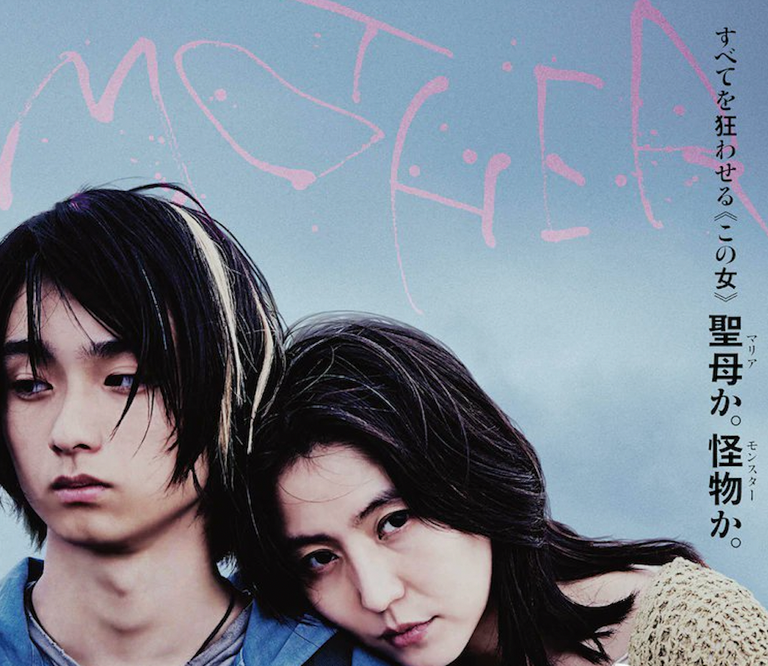 Screenshot
Screenshot
Let's Play Hooky...Forever
Wow, just wow. Alright, I know it’s not best practice to start a writing piece with the exclamatory word Wow, but I think I can be forgiven on the basis that the film Mother managed to create a small maelstrom of swirling emotions within my soul that effectively swept me up into a kind of quiet frenzy throughout it's run time. In particular, it felt like a massive gutshot, considering my initial feelings of warmth, comfort, and even safety when seeing the face of familiar actress Nagasawa Masami in the lead role as Misumi Akiko, the mother in question. She had previously played the beautiful yet caring middle sister in a different drama titled Little Sister, another fine bit of Japanese cinema that I came to see as the polar opposite of this offering. While certainly retaining the carefree and bubbly beauty that had so endeared itself to audiences in that particular film, those qualities would to a lesser extent be retained, albeit massively dampened, or rather replaced by a selfish, abusive, and overall careless disposition.
Akiko is a single mother largely uninterested in the responsibility of taking care of her only child, Shuhei, in a nurturing, caring, and responsible manner. Unable to keep a job for more than a few minutes, Akiko is more content with leaning on her good looks to manipulate male suitors into giving her money and favors, said money often gambled away in pachinko parlors or parties. Of course, when these men are unavailable, she searches for handouts from her family and ex-husband, often using Shuhei as a tool to invoke pity and increase the chances of monetary gain. Living a nomadic life given the inability to responsibly budget for expenses and necessities, Shuhei is incapable of developing any sense of security beyond that of his mother’s presence. Yet, we come to see that even the ugliest pots can find a lid, and it is in her precious pachinko parlors where Akiko meets a fun-loving and lively man named Ryo.
I suppose one can say that birds of a feather will flock together, but it isn’t only the vibrant energy of the two characters that leads them to fall for one another, but also their wanton dishonesty, lack of shame, and manipulative tendencies that create a vicious circle which works to slowly degrade not only themselves but young Shuhei in the process. The couple lives on a wing and prayer, splurging money wherever, whenever, and however they can when obtaining it, stretching this untenable lifestyle to the point where playing family reaches its predictable punctuation when Akiko becomes pregnant. Ryo disappears almost as quickly as their finances once this particular state of affairs comes to the surface, and Akiko is once again forced to beg, borrow, and scrap her way through existence, young Shuhei having no choice but to follow along like a little shadow that acts as both a burden to his mother while at the same time acting as the only constant in her unpredictable life.
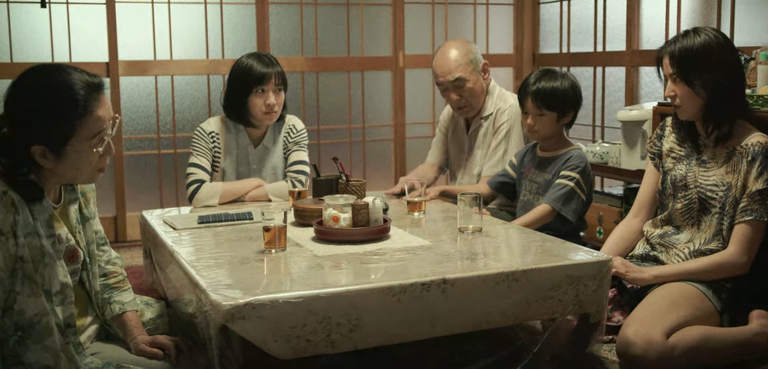 Screenshot
Screenshot
We All Grow Old
The birth of a young girl gives Shuhei someone to care for as well, and the young man tries his hardest to at the very least fill his little sister's days with the happiness and hope that he was never afforded. However, for Mother Akiko, her daughter better serves as another useful tool for manipulating Shuhei into doing her bidding. As a young man, Shuhei’s ability to work gives his mother another means of bankrolling her vices, and while hope does present itself in the form of caring social workers who sweep this family off the streets and provide housing along with the opportunities to attend school for Shuhei, the return of the parasitic Ryo comes to exacerbate old feelings and habits, breaking whatever potential may have been taking root. The toxic state of affairs that plunges this entire family into a depressing abyss again marches towards its grim conclusion when Ryo decides to wash his hands clean of his part-time time family, leading to further uncertainty for the future, and the eventual decision on the part of Akiko that begging the family for money is no longer an option. I feel it is impossible to not give away the ending of this film for my analysis to feel more complete, and so at this stage, I warn of spoilers ahead and encourage viewers to watch Mother for themselves before proceeding further.
On Parenting
I commend those who have decided to carry on reading but welcome back to anyone who went away to watch this heart-wrenching drama on parental failure. As life continues for this family led by its miserable matriarch, old Ryo decides to hit the bricks again due to owing debts to dangerous individuals that would otherwise show his little adopted family to be yet another luxury he could not afford. However, this would form only the omas bouche before the malicious main course. Like any good manipulator, Akiko becomes very skilled at getting Shuhei to plunge his hands into the muck and grime to keep hers clean, and this doesn’t find any more inexcusable expression than when she convinces him to kill his grandparents for their money. Having no ability to break away from her influence, and having developed no confidence to stand up against her, he reluctantly sees out this task under the impression that it will mean security for his little sister. The tale of this tragedy comes to a head with Shuhei's eventual arrest and subsequent imprisonment due to his refusal to sell his mother out, and while his sentence of 12 years is a rough one, his abusive mother’s punishment is not necessarily any better. Despite avoiding jail time, she would lose both her children with her young daughter being sent to foster care, thereby depriving her of both her tools for manipulation.
As a parent myself, Akiko was infuriating and elicited feelings of genuine disgust when it came to her self-centered actions and her overall abuses designed to keep her child ensnared in a web of fear and uncertainty. Of course, this speaks to some fine acting chops by actress Nagasawa, who is so good at changing roles from carefree fun lover, to dark and sadistic abuser and gambler. Mother is a film that does well to show that there are far worse forms of abuse than the physical kind and that its implications are so far-reaching as to completely poison the progression from stage to stage of a child and indeed an entire family. If 50% of parenting is just showing up, then Akiko at the very least gets this much right, and one would hope that deep down lies a person who does love, care, and want her children with her, but sadly, this is completely overshadowed by her selfish, lazy, and irresponsible urges. The film communicates just how important it is for us to foster confidence, courage, and ambition in our children, but when it comes to Mother Akiko, nowhere is there ever a hug of encouragement, validation, or genuine concern for those she is charged with protecting and caring for. Shuhei's inability to stand up for himself should not be met with anger or frustration, but with genuine pity for a young man who was not guided in producing the cognitive and non-cognitive tools necessary for a well-balanced and capable boy, let alone a young man. Yet, we also see how strong a son's loyalty is towards his mother, and how Shuhei's knowledge of the state of affairs guides his willingness to sacrifice everything to protect her, not because he doesn’t have other options, but because of the knowledge that his mother would be a great deal worse off without him in her life.
The Lesser of Two Cages
Audiences may feel, as I did, massively frustrated at Shuhei's inability to assist in sending his mother down the river, but perhaps we have a young man who was more knowledgeable of the state of affairs than we would otherwise give him credit for. While we could read his inability to fully disclose his mother's involvement in the atrocity that unfolded as evidence of the massive psychological hold she has over him, we could also interpret his omission as the first autonomous decision he ever got to make. Worse still and while not its primary theme, it disturbs to know that prison provides more of a life for him than the outside world ever could, and Shuhei feels only too grateful to have a roof over his head, daily meals to fill his belly, and books to liberate his heart and mind.
The final resource is of particular significance, and it is indeed significant that Akiko would react so violently earlier in the film to the social worker bringing books to her two children. It was a scene that possibly communicated her conscious or unconscious knowledge of the vast potential that books have to plant the seeds for liberation into her children, children that she was only too happy to keep ignorant and complicit to her designs and desires. How funny is it indeed that the tools for Shuhei's liberation, in particular, would be found in the physical manifestation of its antithesis. Yet, the four walls of his mother's drab and dreary living space resemble more of a prison than those of her son’s bars, even if they are secondary to the far more terrible cage of regret, hopelessness, and isolation. She sits in her space staring blankly into the distance like a zoo lion who has lost its fire for hunting, weary to the point where she hardly feels the touch of the social worker who reports her son’s loyalty and love for her despite everything that she put him through. It is perhaps in this sense that Shuhei inadvertently finds the greatest avenue for revenge, kindness, piling hot coals on the head of the person who had wronged him for so many years, serving to further compound her soul-crushing guilt and failure as a mother.
Conclusion
Mother is a good film with phenomenal actors and actresses who all come to the party to deliver memorable performances. I for one have always enjoyed the bravery of filmmakers who are not afraid to show the shortcomings of their societies, which while enraging and in some instances intriguing, also bring about a solidarity born from the fact that we all sin, we all struggle, we all fall short sometimes. However, I also felt that the film showed how tremendously difficult parenting is, with even Akiko's seemingly well-balanced parents failing to succeed with all of their children. There is certainly more to the enterprise of parenting than providing food and shelter, but equipping with the necessary skills to weather life's storms and take responsibility in the face of any and all odds. Mother is a film I highly recommend for those looking for a challenging drama that stirs emotions and teaches valuable lessons. Well done to director, Omori Tatsushi, for this powerful film, and as always, I wish you, dear readers, happy viewing.
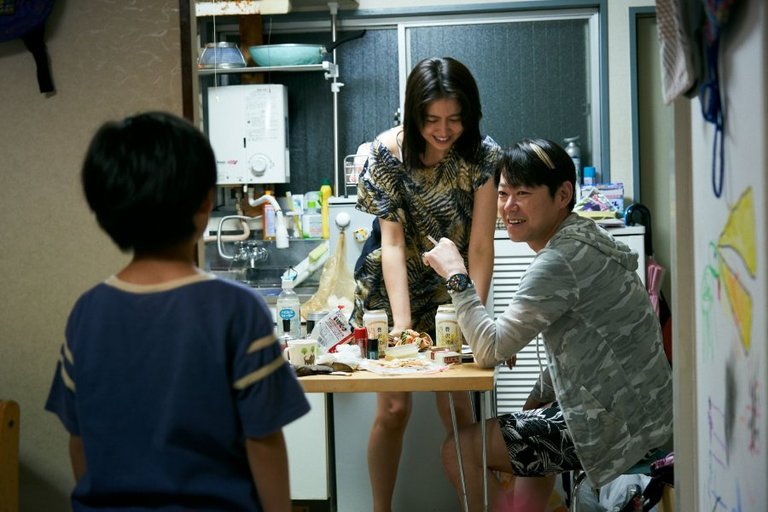
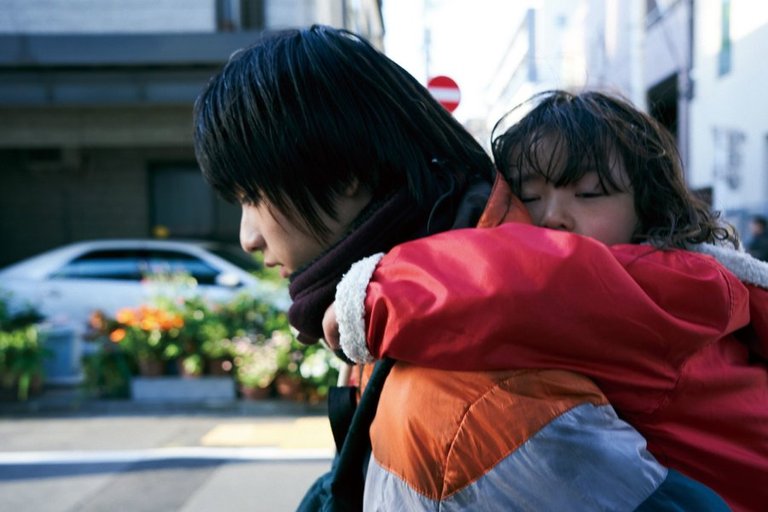
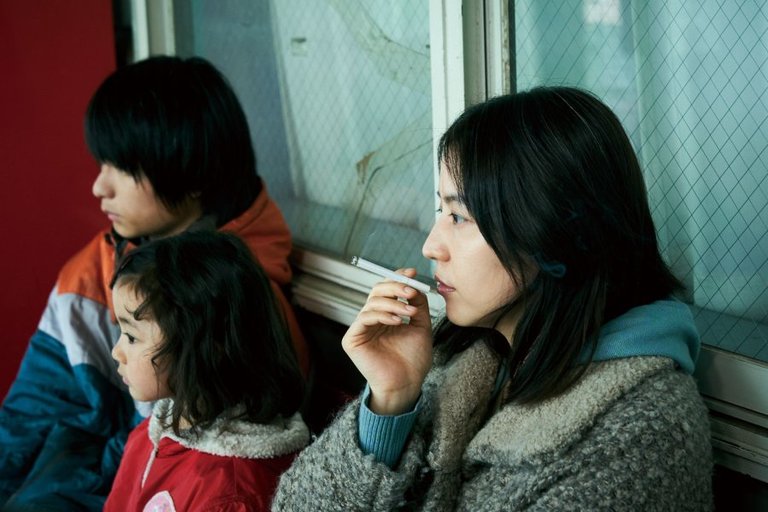
Congratulations @oryansbelt! You have completed the following achievement on the Hive blockchain And have been rewarded with New badge(s)
Your next target is to reach 400 upvotes.
You can view your badges on your board and compare yourself to others in the Ranking
If you no longer want to receive notifications, reply to this comment with the word
STOPCheck out our last posts:
Congratulations @oryansbelt! You received a personal badge!
You can view your badges on your board and compare yourself to others in the Ranking
Check out our last posts: